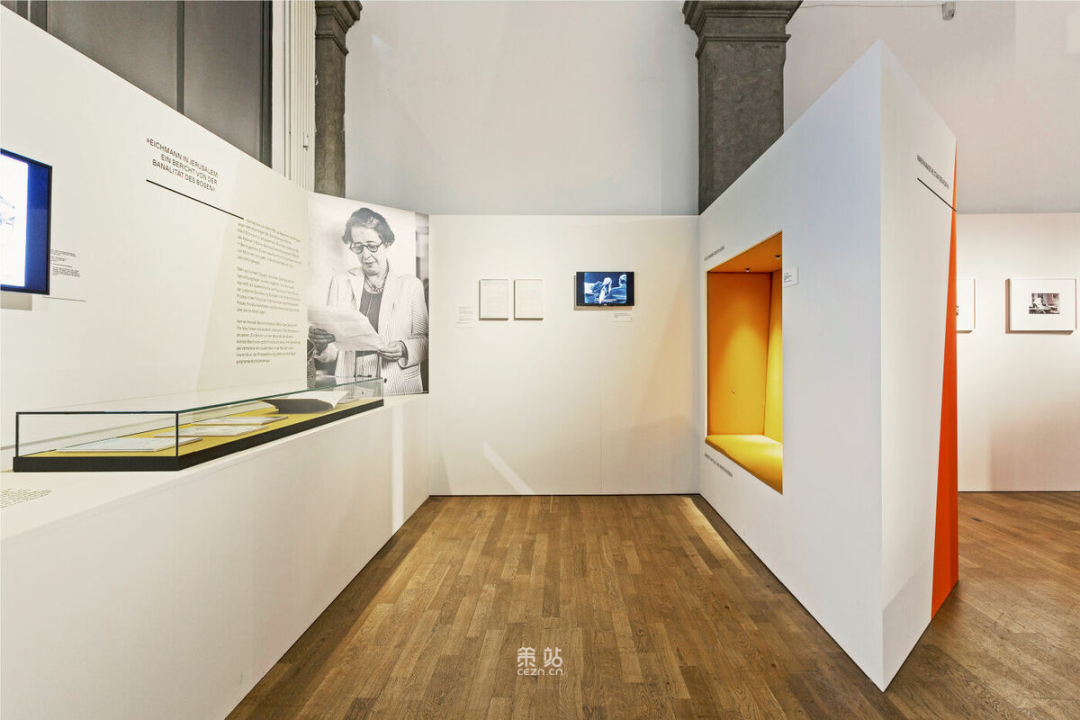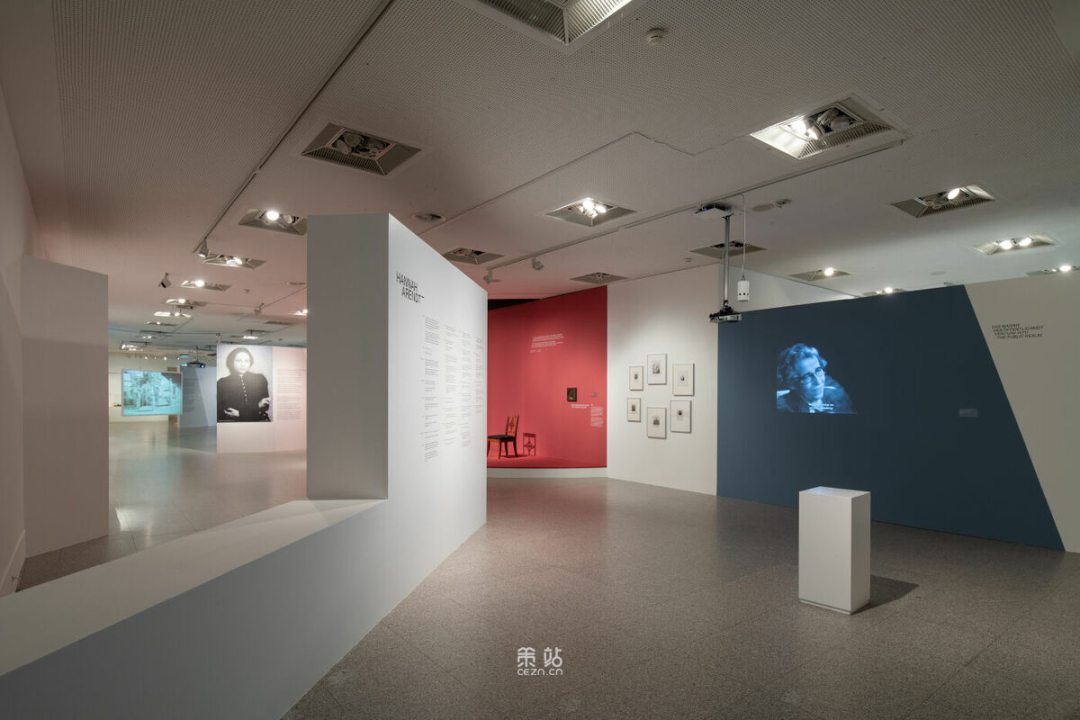
“沒有人有服從的權利。”漢娜·阿倫特對于政治的悖論有著特殊的感覺。德國歷史博物館年度節目“歷史判斷”中的特別展覽就是獻給這位哲學家的。導演拉斐爾·格羅斯(Raphael Gross)和他的團隊為處理德國的政治思想和行動制定了這個框架。
"No one has the right to obey." Hannah Arendt had a special feeling for the paradoxes of politics. A special exhibition in the annual "Historical Judgment" program of the German Historical Museum is dedicated to the philosopher. Director Raphael Gross and his team developed this framework for dealing with political thought and action in Germany.
德國歷史博物館
German Historical Museum
漢娜·阿倫特是誰?她在一次著名的電視采訪中回答說,她是政治思想家,而不是哲學家。她也是一位被解放的猶太人,被納粹國家強迫逃離。她是一位教授、作家、評論家和記者。但最重要的是,她是自由和法治的熱心倡導者。她傳記的多面性、她“沒有欄桿的思考”以及她在精神和思想上的多樣化友誼,使得對漢娜·阿倫特的考察變得如此豐富和令人興奮。
Who is Hannah Arendt? She responded in a famous TV interview that she was a political thinker, not a philosopher. She was also a liberated Jew who was forced to flee by the Nazi state. She is a professor, author, critic and journalist. But most of all, she was a fervent advocate for liberty and the rule of law. The multifaceted nature of her biography, her "thinking without rails," and her diverse friendships of spirit and thought make the examination of Hannah Arendt so rich and exciting.
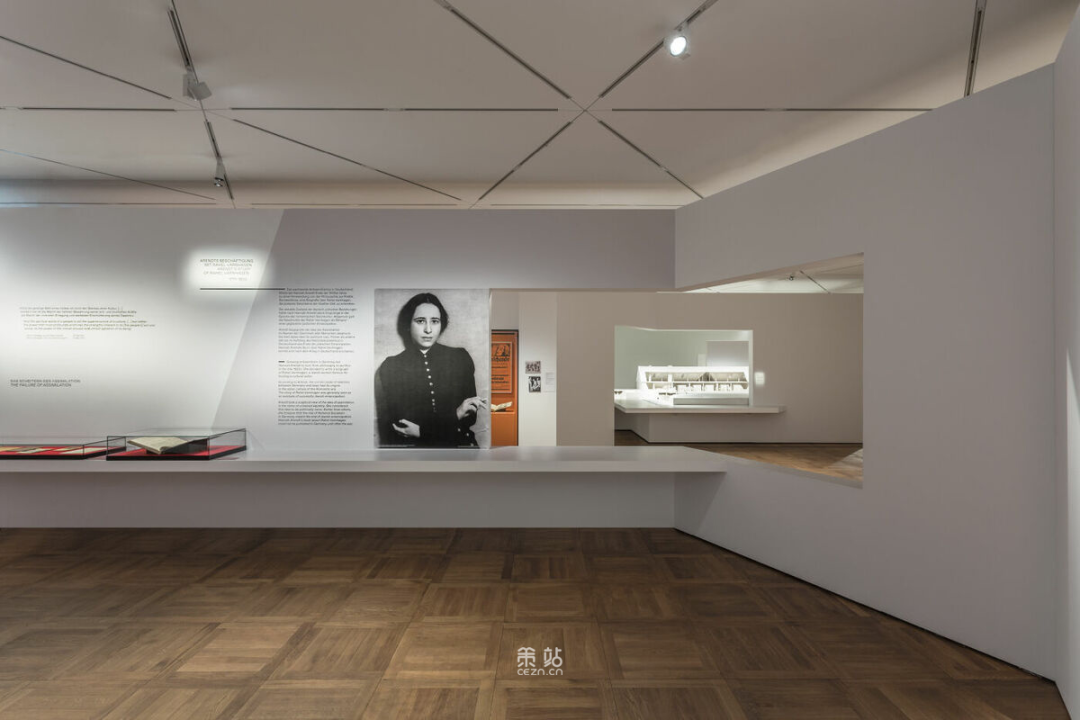
因此,一個相應巧妙而有趣的場景設計面臨著許多重要的問題:如何安排和設計豐富的信息,讓參觀者感覺并受到刺激去探索這種生活和思想的多樣性?
您如何營造一種氛圍,能夠將阿倫特的生活和個性轉化為您那個時代的空間?
Therefore, a correspondingly ingenious and interesting scene design faces many important questions: How to arrange and design rich information so that visitors feel and be stimulated to explore this diversity of life and thought? How do you create an atmosphere that translates Arendt's life and personality into the space of your time?
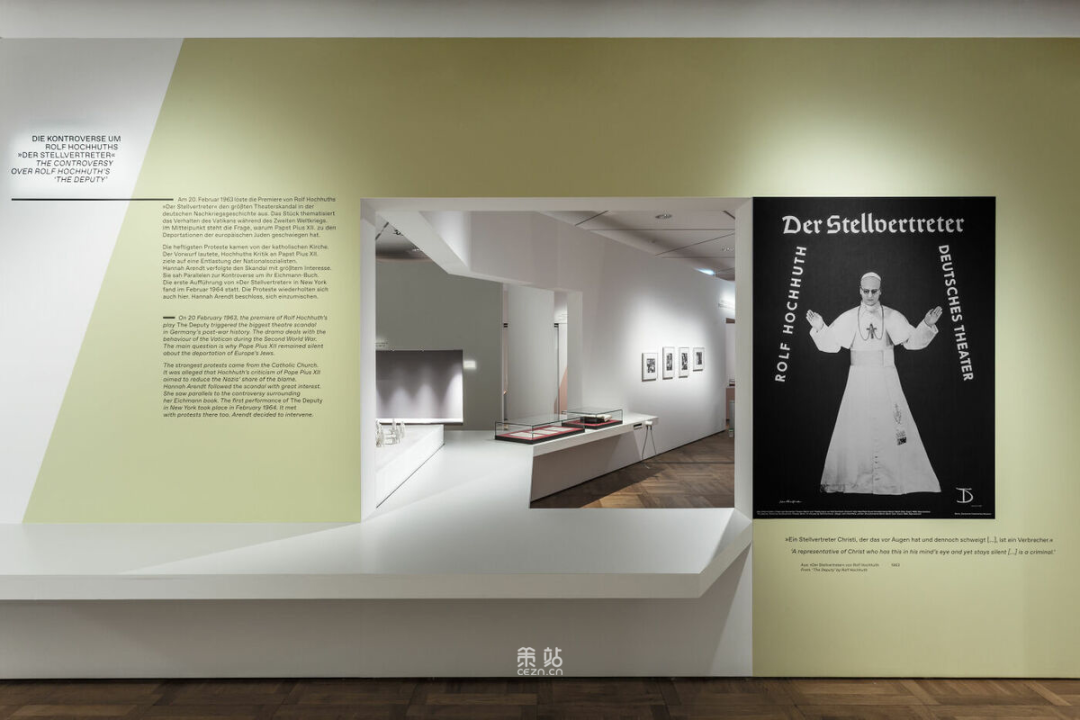
chezweitz 在兩層樓上建造了一個空間結構,沿著策展人明確提出的主題組織參觀。其結果是一個建成的、可步行的、三維的網絡,開辟了令人興奮的空間、多樣化的參考和視角。圖形和媒體的巧妙運用使得展覽設計能夠為主題的嚴肅性提供空間,同時允許對漢娜·阿倫特這個人的非常個人化的看法。
chezweitz has built a spatial structure over two floors that organizes visits along the themes clearly articulated by the curator. The result is a built, walkable, three-dimensional network that opens up exciting spaces, diverse references and perspectives. The clever use of graphics and media allowed the exhibition design to provide space for the seriousness of the subject while allowing for a very personal look at the person Hannah Arendt was.
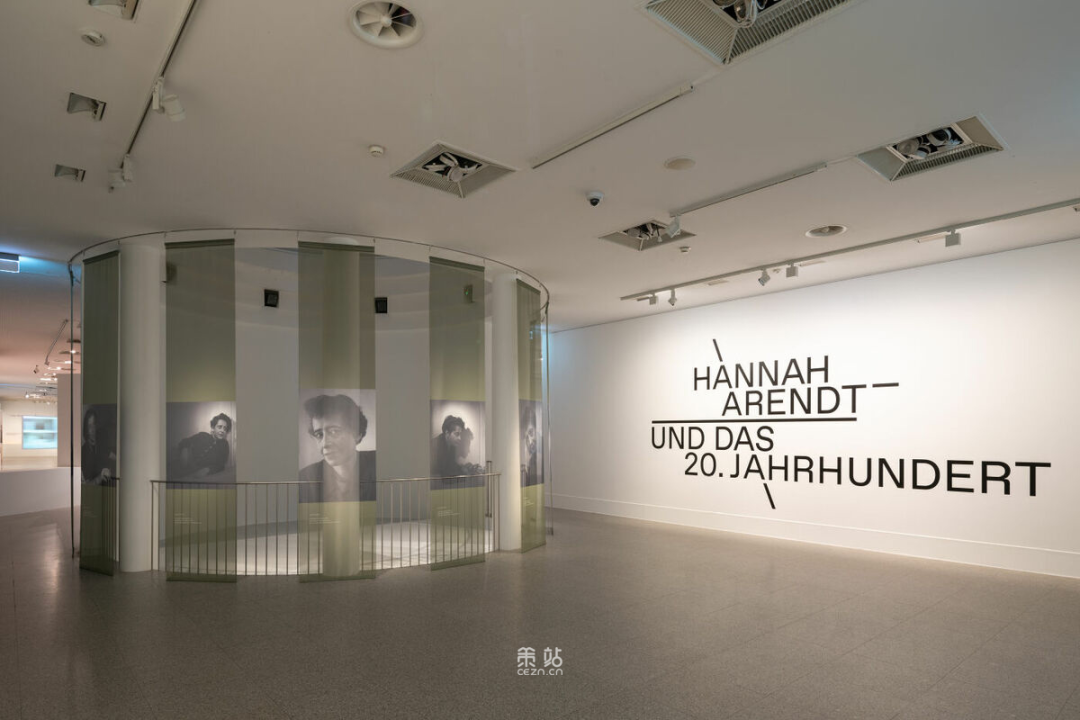
兩個電影室和眾多的音響壁龕幫助游客想象這位政治思想家和迷人的人物。展覽的中心展品和第一視角將是波蘭藝術家 Mieczys?aw Stobierski 設計的位于奧斯威辛-比克瑙滅絕營的火葬場 II 模型,該模型經過移位和重新布置,與漢娜·阿倫特不斷感動的事物聯系在一起:針對人性。
Two movie rooms and numerous audio alcoves help visitors imagine this political thinker and fascinating figure. The centerpiece and first view of the exhibition will be a model of the Crematorium II at the Auschwitz-Birkenau extermination camp by Polish artist Mieczys?aw Stobierski, which has been displaced and rearranged in a continuous fashion with Hannah Arendt. Things that move are connected: targeting humanity.
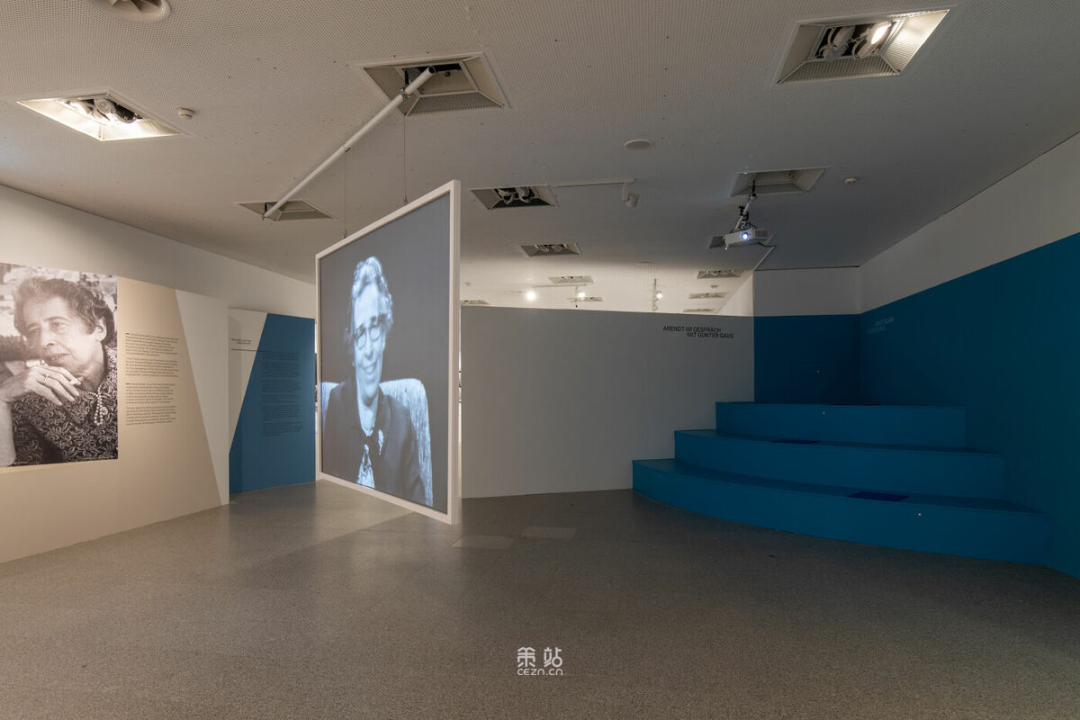
一位有著復雜生活的令人興奮的女人正在等待著您。
An exciting woman with a complicated life awaits you.
